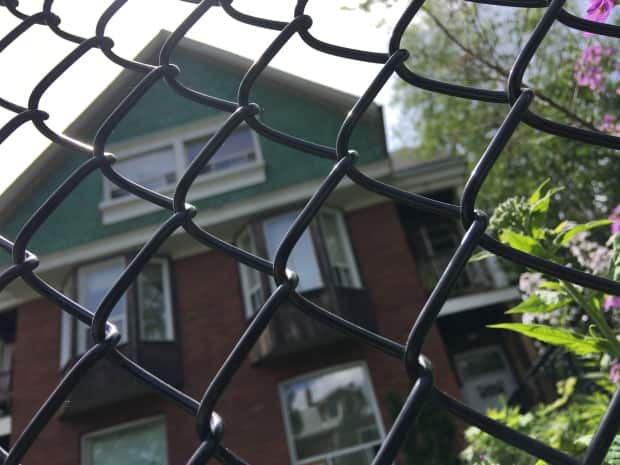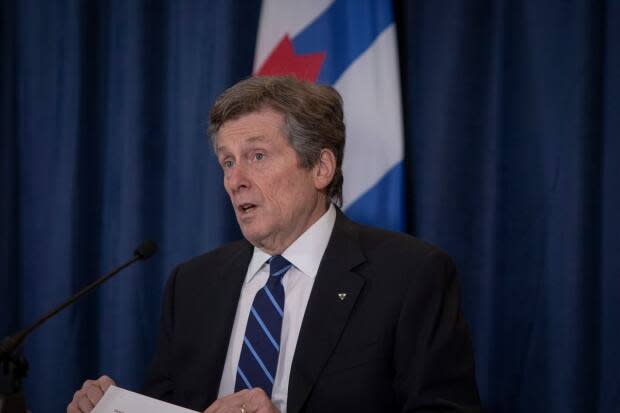Council punts decision on proposed new rules to legalize rooming houses in all of Toronto

Toronto city council has deferred a vote on a proposal that would have legalized and regulated rooming houses across the city.
Mayor John Tory moved to delay a vote on the issue Thursday morning, saying the proposal as it was currently constructed did not have the votes to pass. It's now set to come back to council on Sept. 30.
Tory said that he has talked with the majority of councillors in recent weeks and plans to sit down with those who wouldn't have supported the plan — including members of his hand-picked executive committee — to work with them.
"This is a matter whose time has more than come," Tory said. "We will work to get this majority agreement."
"The status quo clearly cannot be described as acceptable public policy in any way, shape or form."
City staff had put together a new regulatory framework for rooming houses in Toronto. Currently rooming houses, or multi-tenant houses as they are also known, are legal only in the former city of Toronto, parts of the former city of Etobicoke, and former city of York. These houses provide accommodation in a single room with a shared kitchen and/or bathroom.
Under the proposed plan, rooming houses would be limited to six dwelling rooms in most residential neighbourhoods and their landlords would have to be licensed. There would also be parking and washroom requirements based on the number of rooms.
The plan also includes a new licensing bylaw, a multi-housing tribunal, and a new enforcement and compliance team that would carry out annual inspections and support for tenants in a bid to maintain affordable housing and not displace existing tenants.

At Thursday's meeting, several councillors said they opposed the plan, citing concerns over things like parking and community consultation.
"There are people concerned about protecting the integrity of single-family communities," said Scarborough-Southwest Coun. Gary Crawford.
Don Valley East Coun. Denzil Minnan-Wong said there is a divide between downtown and the suburbs on the issue.
"The suburbs don't want this — maybe we should just accept that and move on," he said.
A 'vital and critical form of housing,' councillor says
Others, like Spadina-Fort York Coun. Joe Cressy, supported the plan, saying rooming houses are essential for people like students and newcomers.
"I believe that rooming houses … they're a vital and critical form of housing in our city," Cressy said.
"For many, it's the only option."
This has been an issue the city has grappled with for years.
Zoning and licensing bylaws for these houses, which are described as "fragmented" in the report from city staff, have not been "harmonized" since Toronto was amalgamated in 1998.
"Due to this lack of harmonization, people continue to operate unlicensed multi-tenant houses throughout the city, to meet demand," the report reads.
Abigail Bond, housing secretariat executive director for the city, said that rents in rooming houses in the region range from $400 to $700, while the average studio apartment rent in Toronto is around $1,100.
"So for those that say we should just shut down all the illegal rooming houses, is there any place in the City of Toronto that those people would be able to rent at that price?" asked Coun. Ana Bailão, chair of council's housing and planning committee.
"I think it would be exceptionally challenging … if you're currently paying $400 a month on rent, there are extremely limited options," Bond replied.
"I think that the lack of the options at that end of the affordability scale is what is driving people into our shelter system."
Plan contains 52 recommendations
Bailão previously said there are 350 licensed rooming houses in Toronto, but illegal and unregulated rooming houses exist across the city, including in the former cities of Scarborough and North York. She said rooming houses are among the most affordable homes in the city, but when they are illegal, there are often concerns about their safety, upkeep and maintenance.
The existing staff report to council contains 52 recommendations, including:
City-wide zoning standards that permit the use of and enable equal access to multi-tenant houses.
Licensing requirements for landlords of rooming houses to promote health and safety.
An enforcement and compliance team to ensure landlords follow the rules.
Initiatives to support tenants and maintain affordability.
A phased implementation over three years.
"This report proposes the creation of a comprehensive city-wide regulatory framework for multi-tenant houses, one of the most affordable forms of housing, to respond to calls for deeply affordable and safe housing in all parts of the city," the document reads.
"The framework uses a human rights lens and ensures regulatory oversight to protect tenant life safety and create livable, well-maintained and affordable places to live that are part of complete communities."

